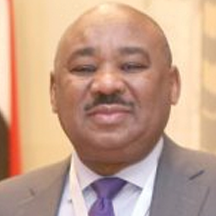In a nutshell
As an economic development model, the knowledge economy is based on the creation, transfer and dissemination of knowledge and innovation.
Four pillars are necessary to create knowledge that needs to be transformed into products valued by the MENA markets to promote growth, create jobs and increase welfare: the economic and institutional framework; an educated and skilled population; innovation systems; and a dynamic information infrastructure.
Some MENA countries have adopted concrete plans towards building knowledge economies and have started to invest in these four pillars, but much more needs to be done.
This year’s ERF conference marks the 25thanniversary of the ERF, which was established in 1993 to build a strong research capacity in the region. Hosted by the Arab Fund for Economic and Social Development in Kuwait City in March 2019, the participants will focus on the theme of Knowledge, Research Networks, and Development Policy; and the keynote speakers are Paul Collier of the University of Oxford, Rana Hendy of the Doha Institute, Rohinton Medhora of the Centre for International Governance and Innovation, Mahmoud Mohieldin of the World Bank and Lant Pritchett of University of Oxford.
Conference theme
Countries in the Middle East and North Africa (MENA) face a myriad of lingering and emerging development challenges, ranging from achieving sustained job-creating growth to meet the youth bulge and dealing with climate change and environmental degradation, to building peace and reconstructing societies and economies coming out of conflicts.
The answer has been and will continue to be strong institutions and good governance. But in the emerging increasingly digital global economy, MENA, like other developing regions, should deploy whatever institutional capacity it has to promote meaningful knowledge- and innovation-based development policy.
As an economic development model, the Knowledge Economy is based on the creation, transfer and dissemination of knowledge and innovation. It hinges on four pillars: economic and institutional framework; educated and skilled population; innovation systems; and dynamic information infrastructure.
These four pillars are necessary to create knowledge that needs to be transformed into products valued by the MENA markets to promote growth, create jobs and increase welfare. Although some countries in the region have adopted concrete plans towards building knowledge economies and have started to invest in these four pillars, more work needs to be done, especially for those that have yet to take the first preliminary steps.
Networks, such as social networks, firm networks and research networks, are major players in the Knowledge Economy, where they expand information and technologies, and catalyse ideas and resources. For example, social networks are widely used in current economic research given their importance in understanding the behaviour of individuals and their decisions. In turn, this facilitates the implementation of policies that would effectively influence individual behaviours.
Firms and research networks allow for the production and dissemination of knowledge as well as the creation of new jobs, which is crucial for the MENA region in light of its high level of structural unemployment, especially among youth.
Therefore, governments and other stakeholders in MENA countries should view the research network as a centrepiece of the eco-system of the envisaged knowledge economy that can achieve sustainable job-creating growth in the emerging technology- and knowledge-intensive global economy.
Knowledge, economic networks and development policy
The use and application of knowledge along with the expansion of information and communication technologies, known as the Knowledge Revolution, are a major source of economic development. But MENA countries lag behind other countries in this regard, given the low investment in education, information infrastructure, and research and development.
Thus, economic networks connecting firms with researchers, universities and other stakeholders as policy-makers and international organisations allow for the creation, transfer and dissemination of knowledge and innovation. This knowledge may lead to the emergence of new industries or the reform of existing ones, which will therefore result in creating jobs, increasing growth and achieving sustainable development.
A plenary panel aims to tackle the process of moving forward on the path towards a knowledge economy by answering the following questions:
- What are the main barriers facing the MENA region?
- What are the main lessons to learn from the International community?
- What is the role of existing research networks, such as the ERF, in catalysing knowledge and achieving sustainable development?
- What is the likely future direction of development research in the new era of digitalisation, big data and global value chains (GVCs), and how should development research networks, such as the ERF, shape their future research agenda?
The role of knowledge in the process of innovation in the new global economy
In a new global economy witnessing a knowledge revolution, investment in intangible assets has become the main characteristic of the Knowledge Economy. This intangible economy is driven by proprietary knowledge, ideas and innovation. Although characterised by high upfront costs as well as high risks, these intangible investments pave the way for low marginal costs and large potential returns and rewards to strategic behaviour.
A plenary panel will discuss the following questions:
- What are the main conditions needed for intangible investment?
- What are the main channels needed to produce knowledge and transform it into innovation in the MENA region?
- What is the institutional framework needed to provide incentives for the creation of patents and proprietary knowledge?
- How can we achieve a balance between protecting intellectual properties and protecting consumers against the power of innovative firms? What role should governments play on the national, regional and global scales?
Job-creating growth in the emerging global economy
A knowledge- and innovation-based economy requires a young, educated and skilled population able to use current knowledge to create new ideas that can be transformed into new products valued by the market. Innovation Networks such as ‘cluster’ or ‘milieu innovateur’ include innovative firms, universities and other institutions.
Created locally or globally, these networks are prime sources of knowledge creation and innovation. New ideas are therefore transferred and diffused between the different members of the network; consequently, creating new jobs to absorb new entrants to the labour market.
A plenary panel will discuss the following questions:
- How might the emerging digital global economy and GVCs, among others, affect the development strategies for MENA and other developing countries, including regarding: the relative effectiveness of manufacturing and services as enablers of job-creating growth; and the role of knowledge and innovation in shaping public policy and development strategies in general?
- How might the collaboration between innovative firms and universities solve the existing mismatch between the outputs of the educational system and the needs of the labour market?
- What are the main challenges faced by the MENA region to invest in skilled and educated human capital? And what is the role of early childhood education in developing the skill sets needed for new jobs?
- How will governments react to the unemployment created by the disappearance of jobs due to the emergence of new technology and knowledge?
Schools of thought and economic research and policy-making in MENA
A special plenary will discuss the schools of thought that have dominated the economic sphere in MENA. The discussions, which are based on a region-wide survey of economists, aim to understand how economic policies are and have been designed in MENA. Given the recent political and economic changes in the region, it is important to understand how the schools of thought play a role in shaping public policies as well as overall development strategies.
From data to policy – rewarding partnership with statistics centres in the region
A special plenary will convene the heads of National Statistical Offices (NSOs) from the region, as centres, researchers and policy-makers, to celebrate the achievements of the ERF Open Access Micro Data Initiative (OAMDI), and to showcase the ERF data collection and harmonisation efforts made possible through the strategic cooperation with NSOs. The session will also highlight the value of sharing micro data and emphasise the research-to-policy link.
ERF in the emerging new normal and the changing nature of work
The ERF is a research network that generates and disseminates knowledge addressing the main challenges faced by the MENA region. These challenges include large-scale violence and civil wars, inequality, employment, climate change, environmental damage, and subsidies and social justice.
But in the emerging global context of technological progress and innovation changing the nature of work and the dramatic decline in oil prices known as the New Normal, these challenges will remain, and new challenges will appear.
Although innovation is known to transform living standards, it may be the reason behind widespread unemployment, as John Maynard Keynes warned in 1930. But recent research – for example, the new World Development Report 2019 The Changing Nature of Work – shows that technology will provide ‘opportunities to create new jobs, increase productivity, and deliver effective public services. Through innovation, technology generates new sectors and new tasks.’
Against this backdrop, a panel session will reflect on the quarter century of ERF research and policy outreach, including the first two years of the current ERF Strategy 2017/2021, and explore the future direction of the ERF, accounting for ideas from a wide and diverse group of ERF researchers; policy-makers from the region; and partners from the development and knowledge community.



